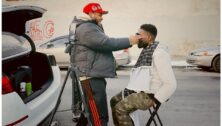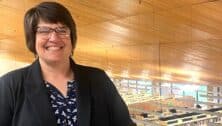Chester County Leadership: Bob Madonna, President & CEO of Surrey Services
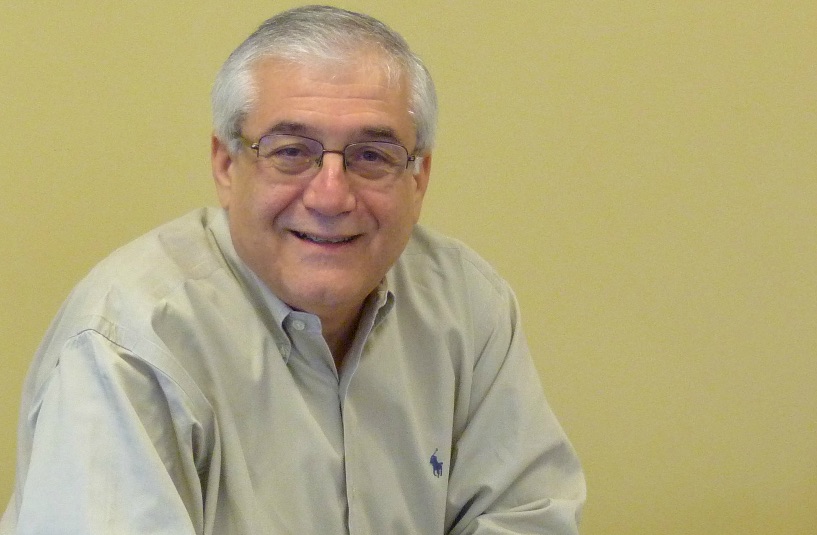
Bob Madonna, the President and CEO of Surrey Services, spoke with VISTA Today about being born in South Philadelphia, then moving into an Irish neighborhood in Havertown as a first-generation Italian family. He claims that he was unathletic as a youngster but had good people skills, which manifested in him running an office football pool.
Madonna also discussed how he always yearned to see if what he learned in the sales world would translate to the nonprofit world, and how his current position has enabled him to find out.
Where did you grow up, Bob?
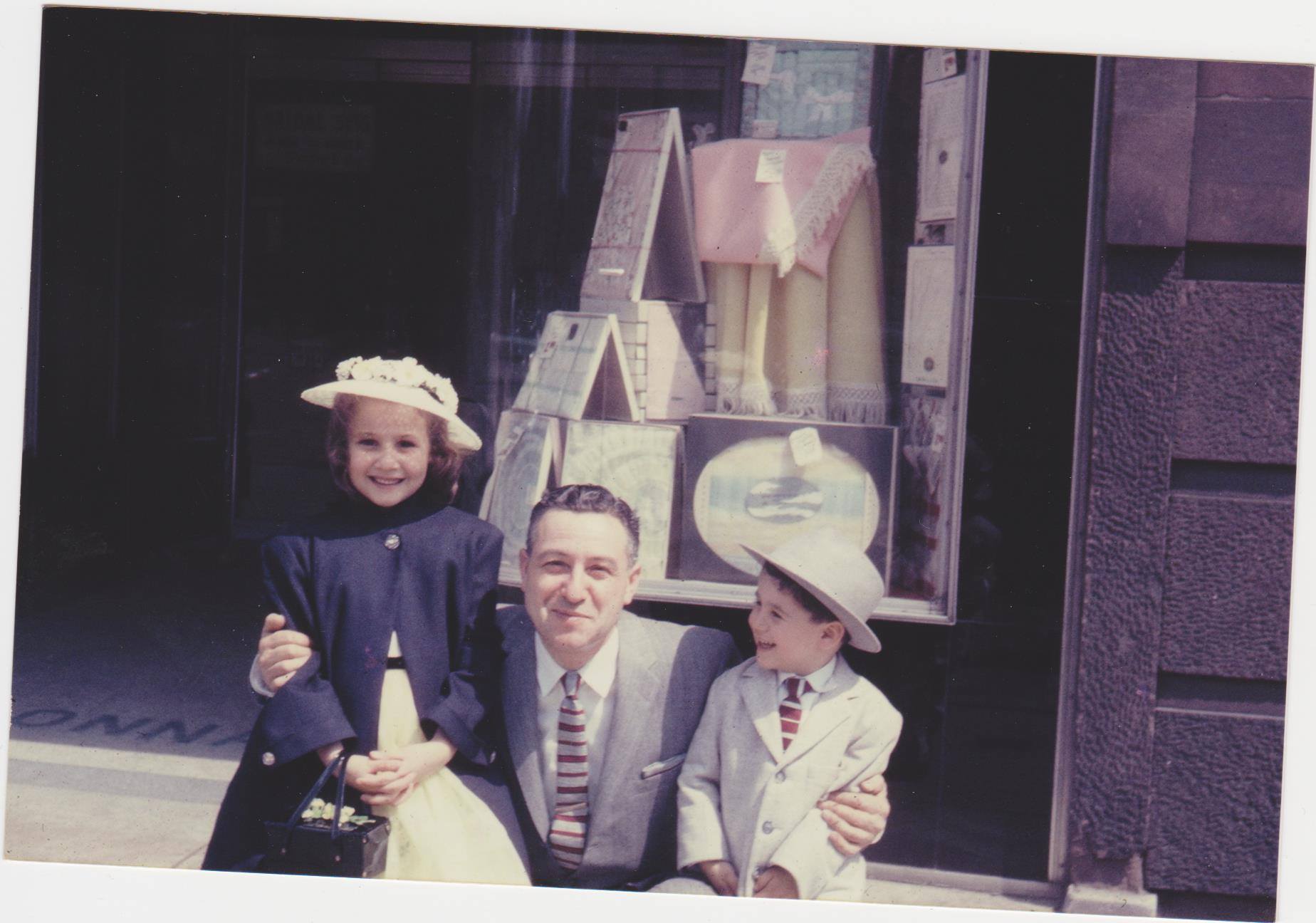
I was born in 1953, the second of two children, and lived the first seven years of my life across from St. Agnes Hospital on Broad Street between Mifflin and Passyunk Avenue in South Philadelphia. When I was seven-years-old, my dad, who sold reupholstering and draperies, was frustrated about never being able to find a parking spot on Broad Street, so he moved us to Havertown in Delaware County.
Was that a difficult transition for you to make?
It was tough. We were a first-generation Italian family moving into an Irish neighborhood. My family dealt with more than a little bias. I also had asthma then and missed a lot of school my first two years in Philadelphia. When we moved to Havertown in the middle of second grade, I was still writing with crayons.
[uam_ad id=”58459″]
.
Because I was so far behind, plus the fact I was young for my grade, the nuns at Sacred Heart, Manoa wanted to hold me back a year. My parents insisted I stay with my grade. As a result, up until I got to college, I struggled in school.
What did you take from that experience in Havertown that stays with you today?
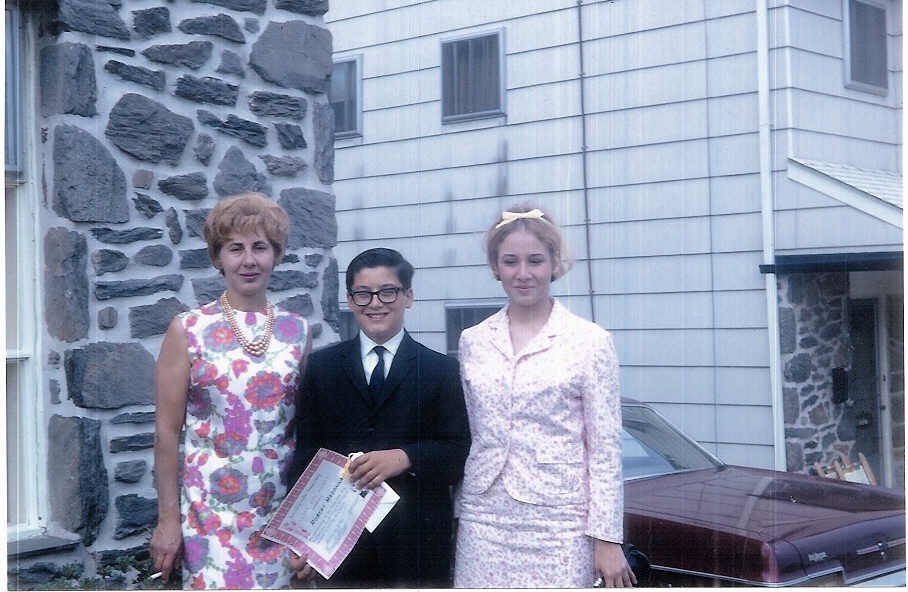
I learned that making friends was critical. All through my childhood I made an effort to make friends and always had best buddies whom I would hang out with and who always acted as my protector.
Did you play any sports when you were young?
While I didn’t play any organized sports, I enjoyed the art of playing. My childhood was about exploring and going to the woods. I wasn’t good at sports, but I was good at people and games involving strategy.
What was it about your personality that made you ‘good at people?’
I always had a sense of humor, and I had no problem laughing at myself. My parents weren’t wealthy and at times had a hard time making ends meet. I learned to overcome adversity and diffuse tough situations with humor.
[uam_ad id=”58459″]
.
Did you have any jobs when you were growing up?
Other than the Bulletin paper route I had when I was ten-years-old, the first real full-time job I had was a camp counselor job my mother got me at Camp FireFly, a diabetic camp in Spring Mount, PA the summer of 1969, the same summer when man walked on the moon and Woodstock happened. I was paid $105 for the entire season!
What did you learn about yourself that summer?
I learned I could pick up on subjects I knew nothing about and be successful quickly. For instance, the camp director asked me to be an archery instructor even though I had never shot a bow and arrow my life. In a few days, I had taught myself how to shoot and then use my personality to get the kids to follow me.
What kind of music were you listening to back then?
I was, and still am a Led Zepplin and Doors guy!
What did you do after graduating from high school?
Until I met my future wife after Senior Week in High School, I wasn’t planning on going to college. Her parents encouraged me to give college a try, and I enrolled at Delaware County Community College. I enrolled and had a blast. Since I had gone to Catholic grade school and high school, for the first time, there were girls in my class. I spent the year partying and finished the year with a 1.8 GPA.
[uam_ad id=”58459″]
.
My mother saw my grades and challenged me that if I raised my grades to a 3.0 or better, she would pay the tuition. That’s all I needed! I finished every semester with a 3.0 or better and graduated with an associates degree in business and got married two years later. In February of 1974, my mom had open-heart surgery, passed away and never saw me graduate.
Then what?
I was getting married so I had to get a job. A low level position at the phone company, Bell of PA. opened up, and even though I didn’t know how to type, they gave me the job to help fulfill EEOP requirements.
After I had arrived at the phone company, I realized I didn’t have any mentors. I was the Italian kid with minimal education. I started making friends with the people who were being promoted so I could understand what they were doing right.
At the same time, I was running a football pool all the executives in the building were playing. One day my boss took me aside, told me I had a lot of potential and encouraged me to cut the pool and go back to college and get my Bachelors degree instead. I took his advice, enrolled at what was then Widener College, and finished my degree five years later.
Did getting a degree help you get ahead?
After I had finished school, my career took off. I was promoted several times and advanced from an associate at the phone company’s engineering group, which was a vocational job, to manager faster than almost anyone else at the time. In 1983, after ten years in engineering, I took a job as a product manager in marketing.
When I took the job, I had no idea what a product manager did. Initially, I thought it was my responsibility to do everything to implement new ideas and new products for the phone company to sell. I nearly had a nervous breakdown until I learned to delegate.
At the same time, I made it a habit of studying the company’s organization charts and knew just about everybody in Bell of Pennsylvania.
[uam_ad id=”58459″]
.
What was happening in your life outside of work?
My first wife and I could not have children so in 1980 we decided to adopt. I found a support group called Resolve who helped couples like us adopt kids. After a while, a group of working with the founder of Golden Cradle Adoption, pooled our money, and started to advertise. We put up several billboards near train trestles in the Philadelphia area advertising free housing and medical care. Within three years we were one of the most successful adoption agencies in the United States. We even got featured on Good Morning America and 60 Minutes.
The experience taught me I could make a nonprofit successful by applying the same advertising and marketing techniques I was using at Bell Atlantic.
Did your career continue on the same trajectory?
In 1996, Bell Atlantic asked me to go to New Zealand for three months on a special assignment to reorganize their customer service.
Did you leave Bell? Why?
After returning to the States, I took a job starting up a small division of a publically-traded company named Numerex. After three weeks on the job I knew the position wasn’t going to work out. I went to the CEO who had hired me and told him how I felt. He reassigned me to another division that needed good leadership and off I went. Within five years at Numerex, I helped turn around four companies.

After commuting to Atlanta for almost three years newly remarried and missing all but three meals a month with my children, I resigned from my position as an officer at Numerex in the Spring of 2001 and started my own consulting company helping customers improve their sales and marketing efforts.
There wasn’t enough interaction with people in the job, and me, being a people person, didn’t like being on my own.
I was in discussions for the VP of Sales and Marketing position with Apple Vacations. I received a verbal offer on Friday and scheduled a meeting with Apple management to iron out the details of the offer at 10:00 AM the following Tuesday. That Tuesday was 9/11.
Needless to say, the meeting never happened. Apple didn’t hire an VP of sales and marketing for several years.
[uam_ad id=”58459″]
.
When the job at Apple Travel fell through, I started working with a friend of mine from my Bell Atlantic days conducting sales and customer service training. In the summer of 2003 we formed McCoy Enterprises with another Bell Atlantic alumnus and within three years was named one of the fastest growing companies in the Philadelphia region three times by the Philadelphia Business Journal.
What brought you to Surrey Services?
I missed the nonprofit world and wanted to get back in. I always had this yen to apply what I learned in sales and marketing to the nonprofit world. I interviewed for several nonprofit CEO positions but always came in second, the boards going with a mission leader over me, a business guy. In January of 2016, after six months of interviews, role-playing and white papers, Surrey Services appointed me their new President and CEO.
Why do you suppose Surrey select you?
While I am totally committed to the mission I’m a believer that nonprofits have to think like a for-profit company to reach more people to serve; I believe in community outreach to grow. In my eighteen months we have invested in several initiatives to raise Surrey Services profile and exposure across Delaware and Chester counties, and expand our footprint further into Montgomery County.
How would you summarize Surrey Services’ mission?
Surrey’s mission is to help older adults live with independence and dignity and to continue as active members of the community. We provide services, programs and activities that enable seniors to be social, as healthy as possible and to live at home as long as they choose.
What are the challenges and opportunities facing Surrey Services?
I have two large goals for Surrey Services. One, I want any older adult or their family in our area to call Surrey when they need help with any aging related issues. Two, I want Surrey to be the leader in transportation. When older adults in our service area need a ride, I want to set up an accessible, minimal cost, no-fuss transportation solution.
As with most non profits our biggest challenges are financial. We’re lucky to have several avenues of revenue besides the generosity of small and major donors including home-care services as well as the foundations that contribute to our cause. There are over 41,000 non-profit organizations in the Delaware Valley chasing the same charitable dollars that we pursue. That competitive pressure has encouraged us to form partnerships with other nonprofits including Meals on Wheels and Community Volunteers in Medicine.
[uam_ad id=”58459″]
.
Our other big challenge is market awareness; getting more people to know who we are and what we do. Surrey is well known in the Main Line areas; we’re not so well known in other parts of Chester and Delaware County.
What about beyond expanding into areas beyond Chester and Delaware County?
I may have grandiose ideas of what we can do beyond the immediate areas we cover now, but what I really want to do is focus on doing what we do in the area we now serve.
We’re are now doing a project with the Kennett Square Senior Center where Surrey Services is providing transportation services to seniors needing a ride to important appointments, (doctors, shopping, etc.).
Finally, Bob, what is the best piece of advice you ever received?
A dear friend, the late Jim O’Connell, used to say, ‘it is what it is.’ I can’t solve all the problems. I can’t predict all the problems. What I can do is focus on what is happening today and then deal directly with issues as they arise. It is what it is.
My dad taught me two things which I think about all the time. He said, ‘if you have health, you have wealth,’ and ‘common sense is not common.’ Sometimes we make basic actions or processes much more complex than they need to be.
[uam_ad id=”62166″]
Connect With Your Community
Subscribe to stay informed!
"*" indicates required fields























![95000-1023_ACJ_BannerAd[1]](https://vista.today/wp-content/uploads/2023/03/95000-1023_ACJ_BannerAd1.jpg)






















